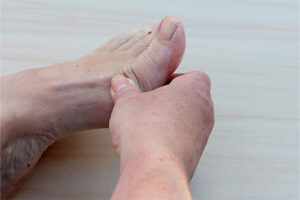Dermatology
Plaque Psoriasis
Counseling the Newly Diagnosed Patient With Moderate to Severe Plaque Psoriasis
Overview
Counseling is central to the management of psoriasis. Strategies for successful counseling include spending adequate time with patients, maintaining empathy, and educating patients about key aspects of their disease, especially those who are newly diagnosed.
Expert Commentary
Alice B. Gottlieb, MD, PhD
|
|
“I tell my patients with plaque psoriasis that my goal is to clear them and that I can clear 90% of my patients. I let them know that I will not give up and that there are very few people whom I cannot clear, and I think that it helps them to hear that from me.”
For a newly diagnosed patient with psoriasis, counseling includes setting expectations on skin clearance and/or improvement in psoriatic arthritis symptoms. I tell my patients with plaque psoriasis that my goal is to clear them and that I can clear 90% of my patients. I let them know that I will not give up and that there are very few people whom I cannot clear, and I think that it helps them to hear that from me. You would think that every doctor would tell them this, but that is not the case. Psoriasis is undertreated, whether it is due to the use of topical treatment when systemic therapy is needed or perhaps an oral small-molecule inhibitor that is not doing the job. Biologics are underutilized by dermatologists, and not all dermatologists include clearance as their goal. Further, if the patient has psoriatic arthritis, my hope is that they do not think about their joints anymore and that they can do whatever they like in terms of entertainment, work, and daily tasks of living. So, I set a high standard.
Counseling also includes a discussion of comorbidities, such as obesity and cardiovascular disease. However, I typically do not tell patients at the very first appointment that they have to lose weight. Their self-esteem is often low to begin with after their initial psoriasis diagnosis, so I wait. I am throwing a lot of information at them during this visit, and the fact that they must lose weight is difficult to absorb at this point in time. When I do have that conversation, I try to frame it in a caring way that builds on the momentum we are establishing in clearing their skin. I might say something like, “I am going to make your outsides beautiful/handsome, but I want your insides to be beautiful too, and I need you to go to your primary care physician because I care about all of you.”
Most of my patients have Medicaid/Medicare, and I also treat children with psoriasis. Caring for these patients involves different approaches. Patients on Medicare may not be able to afford the treatment I would choose for them, which is out of my control, but I have strategies that work well in those instances. In pediatric patients, the joint issues generally precede the skin issues, which is an important thing to know. Younger children also often do not offer information by saying something like, “My joints hurt.” They do not really know what that means, so I will ask them, “Can you run around? Can you participate in sports like your classmates do?" Thus, you approach a new diagnosis a little differently in this group than you do with adults.
References
Adler BL, Krausz AE, Tian J, Nosanchuk JD, Kirsner RS, Friedman AJ. Modifiable lifestyle factors in psoriasis: screening and counseling practices among dermatologists and dermatology residents in academic institutions. J Am Acad Dermatol. 2014;71(5):1028-1029. doi:10.1016/j.jaad.2014.06.043
Elmets CA, Leonardi CL, Davis DMR, et al. Joint AAD-NPF guidelines of care for the management and treatment of psoriasis with awareness and attention to comorbidities. J Am Acad Dermatol. 2019;80(4):1073-1113. doi:10.1016/j.jaad.2018.11.058
Feldman SR, Malakouti M, Koo JY. Social impact of the burden of psoriasis: effects on patients and practice. Dermatol Online J. 2014;20(8):13030/qt48r4w8h2.
Ginsburg IH. Coping with psoriasis: a guide for counseling patients. Cutis. 1996;57(5):323-325.
Lim DS, Bewley A, Oon HH. Psychological profile of patients with psoriasis. Ann Acad Med Singap. 2018;47(12):516-522.
Meneguin S, de Godoy NA, Pollo CF, Miot HA, de Oliveira C. Quality of life of patients living with psoriasis: a qualitative study. BMC Dermatol. 2020;20(1):22. doi:10.1186/s12895-020-00116-9











